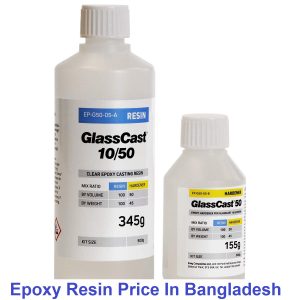
There are a few different options available when you’re looking to buy epoxy resin materials. Our goal is to help you determine which set-up will work best for your company. We scoured the market to find products that can be trusted and affordable.
Contents
- 1 What can you do with epoxy resin?
- 2 How much does resin cost in Bangladesh?
- 3 Which is better epoxy or resin?
- 4
- 5 What is epoxy resin used for?
- 6 Is fevicol epoxy glue?
- 7 What is epoxy resin floor?
- 8 Do i need to use hardener with epoxy?
- 9 Is resin A plastic?
- 10 Can you carve resin with a knife?
- 11 Is epoxy resin strong?
- 12 Why is epoxy resin popular?
- 13 Is resin made from oil?
What can you do with epoxy resin?
Epoxy resin is a two-part mixture composed of an epoxide and a polyol. When these two mix, it creates a a hard, durable plastic that is waterproof and temperature-resistant. These unique properties make epoxy resin ideal for industrial manufacturing, marine applications, and even in the creation of crafts.
The most common epoxy resins are structural adhesives used in manufacturing because they are highly tolerant to shear stress, high temperatures and chemical exposure. Beautiful works of art can be created by using epoxy resin to coat a surface and attach it to another. Functional and decorative objects can be made with the right epoxy resin materials.
How much does resin cost in Bangladesh?
If you are looking to buy epoxy resin in Bangladesh, you need to know the basics of epoxy resin pricing. Before you can compare prices for shipping, shipping costs must be considered. Also you need to consider which option is best for your application.
We believe that our pricing recommendation will help prevent any confusion about what you should expect when you purchase epoxy resin from us. Resin Quantity Price per Litre Price per Kg 1 to 2 litres 2000tk to 4000tk per litre.
Which is better epoxy or resin?
Epoxy resin, sometimes simply called epoxy, is a powerful alternative to traditional materials used in creating crafts. Epoxy resin is one of the most versatile materials. It is great for making functional objects, art and it can even be used as a sealant for sealing buildings and other structures. In fact many industrial applications use epoxy resin because of its toughness to chemicals and extreme temperatures. Here are some of the advantages of using resin material:
- It is highly durable and strong, which means it is great for making functional objects.
- Epoxy resin has a low vapor pressure, which means that it won’t easily evaporate into the air.
- Epoxy does not react with food or humans. It is a non-toxic material that will not irritate the skin or your eyes. However, it can be harmful if you ingest too much of it or if you get some on your skin and don’t wash it off in time.
- This material can be tinted in a variety of different colors using paint or pigments. You can also use colored epoxy resin for making decorative pieces.
What is epoxy resin used for?
Epoxy resin is suitable for a wide range of applications. It is used to make decorative pieces because of how well it accepts paint and how strong it is. There are many functional items that can be made from epoxy resin, such as storage containers and electrical fixtures. It can even be used as a sealant to keep out moisture, although not all epoxy resins are suitable for this purpose.
Epoxy resin has some additional advantages over other materials when you’re making a piece of art or something functional. It is resistant to temperature changes, which means the piece will never break. It also doesn’t attract dust. Overall, the durability of this material makes it a great choice for designers trying to create functional objects.
Is fevicol epoxy glue?
If you’re not sure what fevicol is, it’s a type of epoxy adhesive that is often used to glue wood to wood, but also other materials. As far as we know, the glue in fevicol epoxy glue is always made from epoxy resin and it’s the same material that we sell. To us, there doesn’t appear to be a difference between our products and what you would find at home improvement stores. It’s always good practice to read the label on whatever you are buying, but there is no difference between our products and fevicol as far as we know.
What is epoxy resin floor?
Epoxy resin floor is a protective surface made from epoxy resin. It is a product that is often used in industrial settings, but it can also be used to protect floors in your home. This hard plastic has a low vapor pressure and low shear strength, which means it will resist water damage and cracks. Epoxy resin flooring does not need to be sealed; as a result, there’s no risk of dangerous fumes inside your home or office.
These floors are highly durable and will last for years without any cracks or breaks. If you have an industrial setting where you need to protect the floors, this epoxy resin option is a practical one. It will never crack and it can be resistant to cracks and chips that are caused by too much weight or pressure. It’s a popular option for factories, warehouses and any other high traffic areas.

Do i need to use hardener with epoxy?
If you’re wondering when to use hardener with epoxy, there are several types of epoxies that require a hardener. However, this is not the same for all types of epoxy resin. In some cases, adding a hardener does make the epoxy stronger. However, you need to do some research to find out if your project will benefit from using hardener with your epoxy resin.
The good news is that you don’t have to use hardener with every type of epoxy resin; it will depend on what you are using it for. Most types of epoxy resin are designed for use without a hardener. Hardener is only needed when you want to make your epoxy resin stronger. When you use a resin without a hardener, it’s possible for the epoxy resins to actually weaken or break. As a result, you would need to replace or repair the damage. Playing with epoxy can be incredibly dangerous; this is why many people prefer using products that are made for industrial applications.
Is resin A plastic?
A resins are inorganic polymer or polymers. They can be very simple molecules made from few monomers and they can be very long carbon chains with many monomers bonded together. The most important properties of a resin is its resistance to heat and chemicals, because the majority of resins are thermoset polymers.
Can you carve resin with a knife?
Resin is made of 100% molecules and is not a plastic. You can’t cut it with a knife or a knife sharpener. However, you can use sandpaper to smooth out surface imperfections and minor scratches.
Epoxy adhesive is one of the most common types of adhesives that are used in the industry and it’s available in many different types of resins. Below are some examples:
Is epoxy resin strong?
Resin is an epoxy resin with great physical properties. The main factor that determines the strength of this material is its molecular weight. When it comes to epoxy resin, the weight of the molecules always determines how strong a piece will be and this is true for all types of epoxy resin.
Of course, there are other factors that determine how strong a piece will be. For example, many resins have special additives that improve their strength. If you’re trying to find an epoxy resin like this, you should look for one with physical properties high enough to handle your project.
Why is epoxy resin popular?
Epoxy resin is one of the most popular types of adhesives in the industry because it has an incredibly wide range of uses. It’s used to make decorative pieces, but it’s also used to make functional objects like storage containers and electrical fixtures. Resin doesn’t attract dust or other contaminants if you’re looking for a way to keep your items looking as new as possible. Resin is made from 100% epoxy resins and this makes it very attractive to many people.
Is resin made from oil?
Resin is not oil-based, it’s made from epoxy resin. It’s important to remember that there are many types of resins and each one works a little differently.
One of the most common types of epoxy resin is made from bisphenol A diglycidyl ether or Bisphenol A diglycidyl ether or Bis Diglycidyl Ether or Bisphenol-A Diglycidylether and it has the chemical formula of (C8H10O2).
